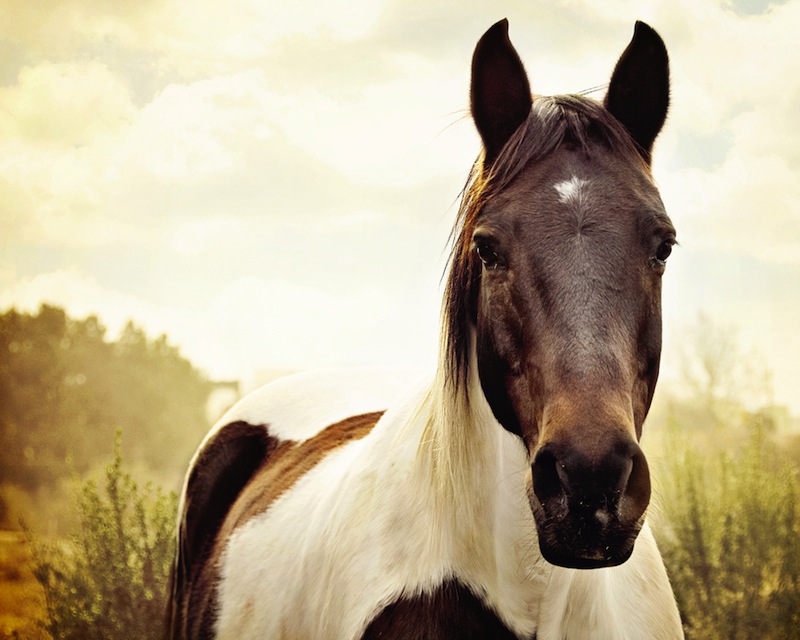ALBUQUERQUE, N.M. (AP) — A southeastern New Mexico company’s plans to convert a cattle plant into a horse slaughterhouse has hit another roadblock, this time over an environmental dispute that the company’s attorney blames on the Obama administration putting politics over policy.
Blair Dunn, who represents Valley Meat Co. of Roswell in its more than yearlong effort to get approval to slaughter horses, says the U.S. Department of Agriculture keeps changing the rules because it opposes horse slaughter.
USDA officials referred questions to the Justice Department, which did not immediately respond to a phone call seeking comment.
Valley Meat’s application to resume domestic horse slaughter has ignited an emotional, national debate over whether horses are livestock or domestic companions. The company wants to ship horse meat to countries where it is consumed by humans and sold for things like zoo food.
The issue has divided horse rescue and animal welfare groups, ranchers, politicians and Indian tribes about what is the most humane way to deal with the country’s horse overpopulation and the rising number of neglected and starving horses as the West deals with persistent drought.
Since the company passed its inspection in late April, officials have been dragging their feet on giving the plant final approval to open by questioning whether it needs a permit under the federal Clean Water Act for discharging waste into water, Dunn said. The plant, he said, doesn’t discharge anything into water, and such a permit was never needed during the 20 years the plant slaughtered cattle.
“If these were not requirements for a cattle facility, they cannot now suddenly become requirements for a horse facility,” Dunn said in an email to David Glass, who is one of the attorneys representing the USDA against a lawsuit by Valley Meat over delays in approving its application.
Dunn compared the process to that of the Internal Revenue Service, which has been accused of subjecting conservative political groups to extra scrutiny when they applied for tax-exempt status.
“Should somebody be looking into whether or not there is direction from the White House to use/abuse USDA/EPA authority with regard to Valley Meat because they are on the other side of a political issue from the president?” Dunn said he wrote to Glass.
Dunn says Glass has not replied in writing but has left two voicemails saying the issue with the permit involves questions over whether the company needs the discharge permit as mandated by the Clean Water Act.
Glass, like the USDA, referred questions to the Justice Department’s communications office, which did not immediately return phone calls.
The state Environment Department confirmed Valley Meat has a closed lagoon type system for its waste, and said to its knowledge the slaughterhouse has never had or needed the federal water discharge permit. Its current state permit for the lagoon is up for renewal.
The issue of whether the plant needs the federal permit was first raised by some of the groups opposed to congressional action in 2011 that restored USDA funding for horse slaughter inspections, essentially legalizing the practice that had been banned in 2006 when Congress cut the funding.
Front Range Equine Rescue and the Humane Society of the United States have filed notice of their intent to sue the USDA if it lets Valley Meat begin horse slaughter without the proper permits.
Department of Agriculture officials did not immediately respond to an email seeking comment on Dunn’s allegations. But shortly after the latest inspection of the plant in April, Agriculture Secretary Tom Vilsack told The Associated Press the plant will open, unless Congress restores the ban on horse slaughter.
Dunn says the USDA is acting in bad faith, dragging its feet while it actively lobbies Congress to reinstate a ban.
The Obama administration’s most recent budget proposal eliminates funding for inspections of horse slaughterhouses, which would effectively reinstate a ban on the industry.
Proponents of a return to domestic horse slaughter point to a 2011 report from the federal Government Accountability Office that shows horse abuse and abandonment have been increasing since slaughter was banned in 2006. They say it is better to slaughter the animals in humane, federally regulated facilities than have them abandoned to starve across the drought-stricken West or shipped to inhumane facilities in Mexico.
The number of U.S. horses sent to other countries for slaughter has nearly tripled since 2006. And many humane groups agree that some of the worst abuse occurs in the slaughter pipeline. Many are pushing for a both a ban on domestic slaughter as well as a ban on shipping horses to Mexico and Canada.
___
Follow Jeri Clausing at http://www.twitter.com/jericlausing .
Copyright 2013 The Associated Press.
Horse Crazy / Shutterstock



